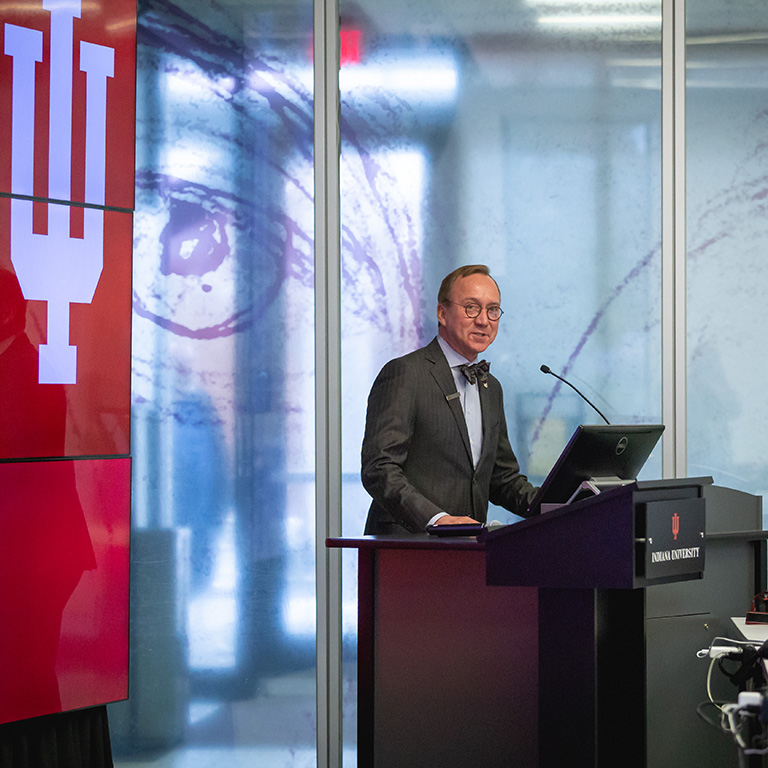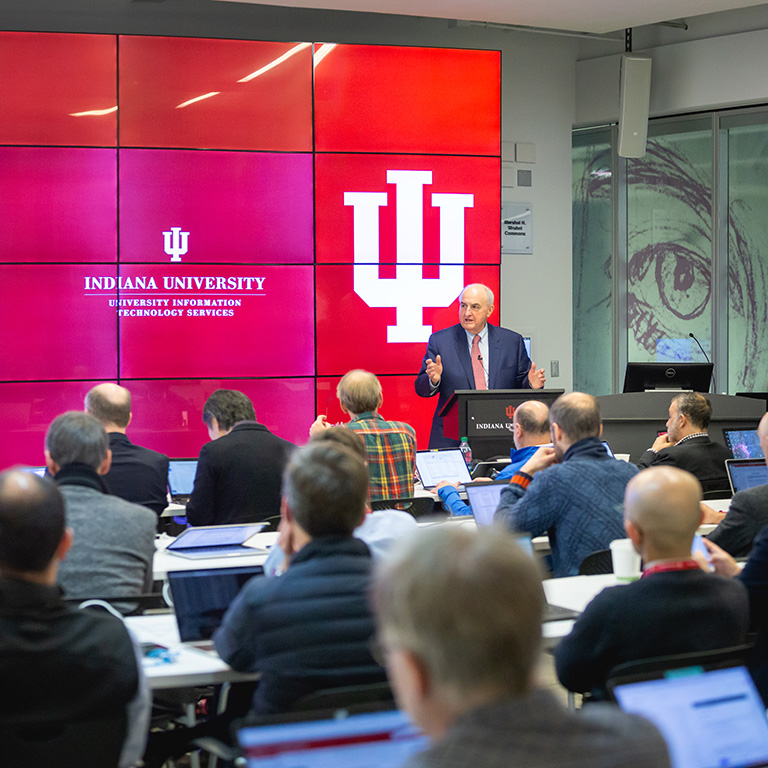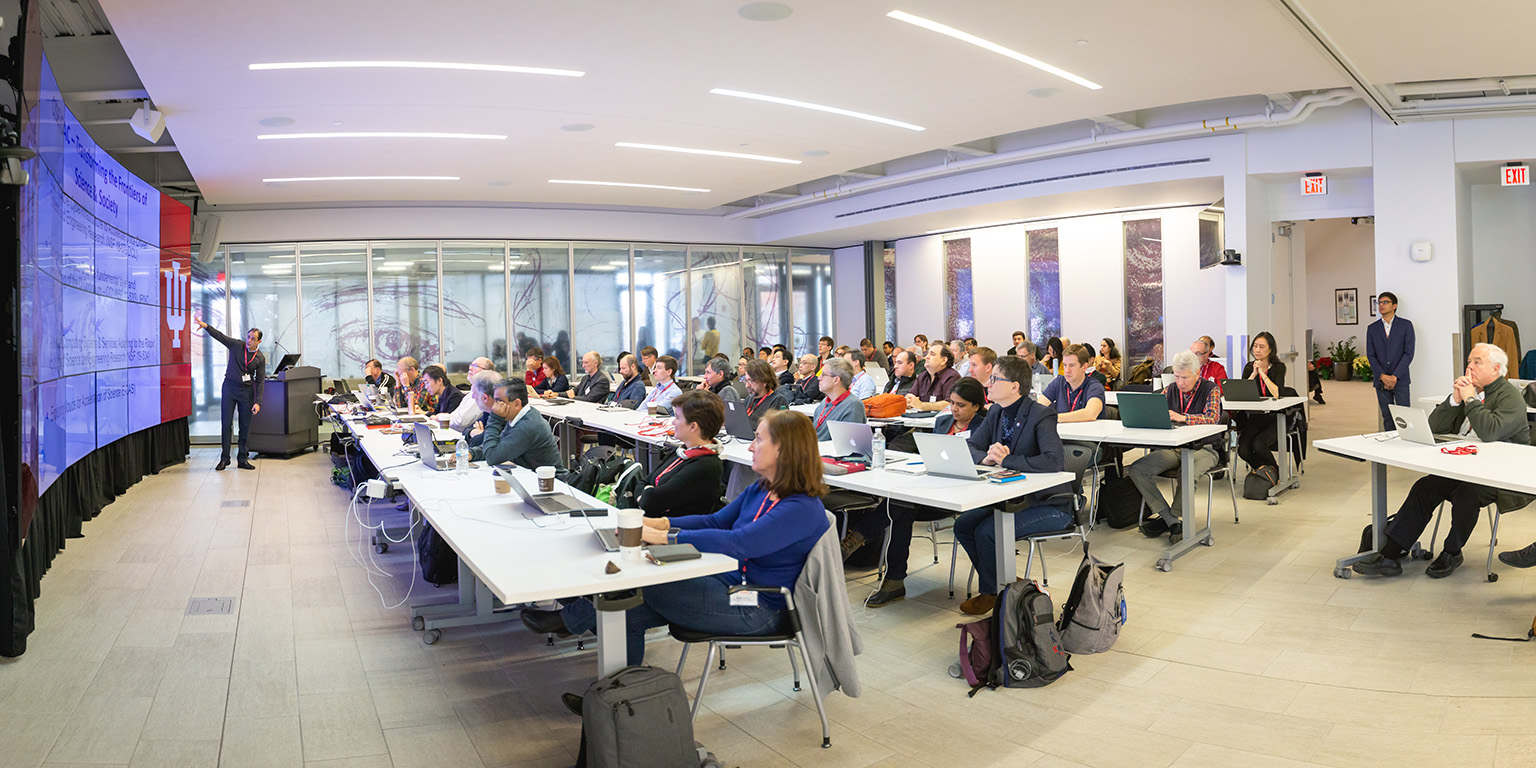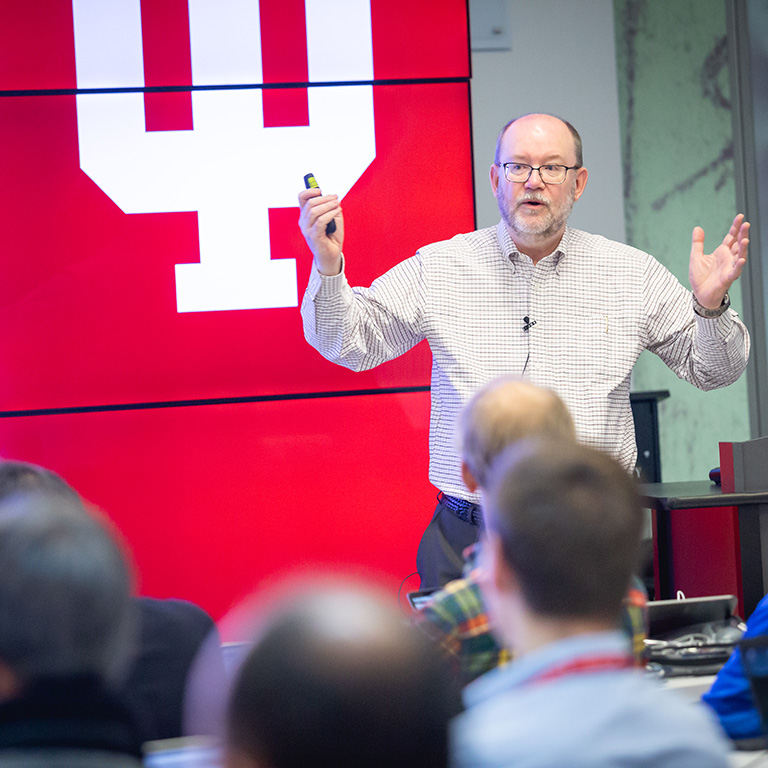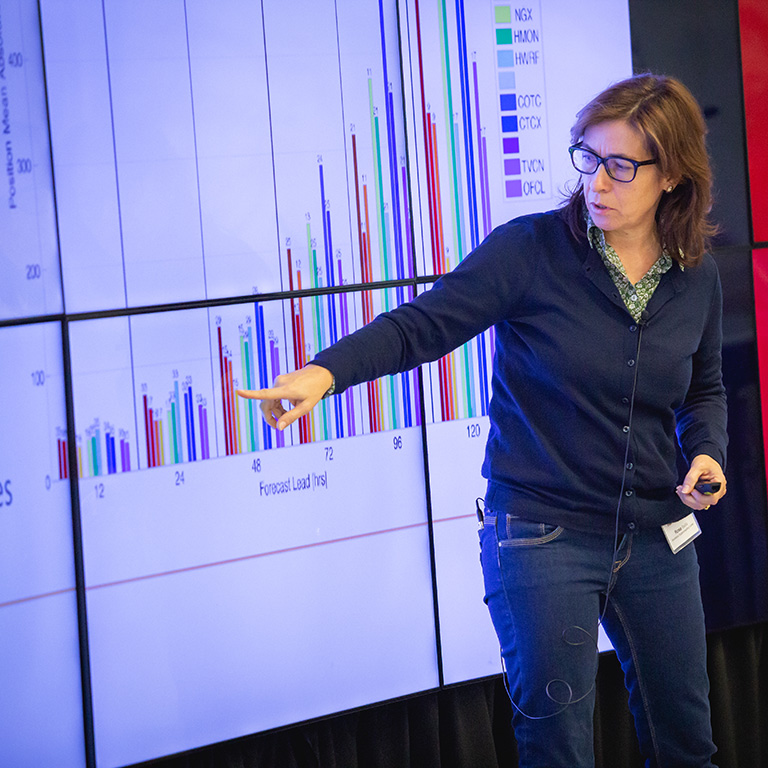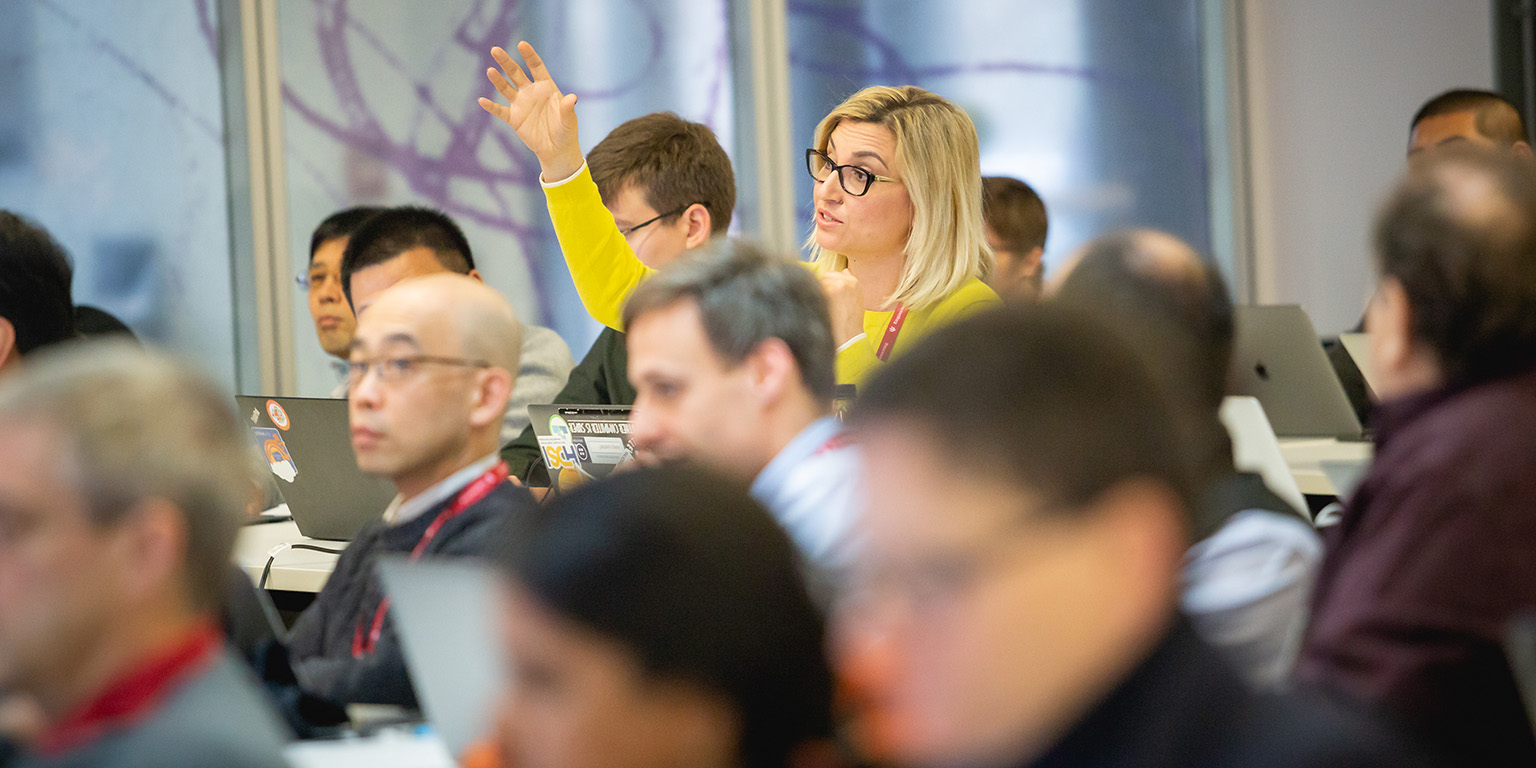Scientists collect Big Data to develop methods for earthquake and tsunami detection, create models to analyze climate change and advance personalized and preventative medicine.
Finding solutions to such challenges requires high-performance computing tools that allow scientists to access and process the massive volume of data collected, and Indiana University recently hosted global leaders to establish a shared cyberinfrastructure that will aid researchers around the world in using Big Data.
BDEC2, the second series of Big Data and Extreme Scale Computing workshops funded by the National Science Foundation and Intel, was held in the Cyberinfrastructure building on the Bloomington campus, and IU President Michael A. McRobbie joined Brad Wheeler, IU Vice President for Information Technology and CIO, to welcome the world's leading high-performance computing researchers.
"Given that the liberal arts are a major part of Indiana University's essential identity...IU has many faculty across many disciplines, including in the humanities and social sciences, who are concerned about the ethical and societal problems that can be caused by the way in which Big Data research is harnessed," McRobbie said.
Over the next two years, BDEC2 workshops will be held around the globe to focus on the issue of how to establish a shared cyberinfrastructure for science in a data-saturated world, McRobbie said.
"For the scientific community, where, among its many other implications, Big Data is leading to a democratization of exploratory research, a major part of the challenge is to determine how to draw sound inferences and conclusions from this abundance of data," he said.
The workshop participants dived right in to start making progress toward this goal with representatives from around the world -- including national and university labs and supercomputing centers in Japan, China, Saudi Arabia, Spain and the United States -- brainstorming strategies to converge Big Data and the high-performance computing tools necessary to make sense of massive data sets.
In his keynote address, Dan Reed, senior vice president for academic affairs at the University of Utah, noted the rise of Big Data in both large high-performance computing instruments and in small technology available to everyday consumers like smart phones.
At the same time, ethical and societal questions are emerging due to advances in areas such as artificial intelligence and machine learning, and Reed emphasized staying ahead of cultural changes as computing technology advances in big and small extremes.
"How do we think about building a fluid and adaptive cyberinfrastructure?" he asked the nearly 80 workshop participants.
Dan Reed, senior vice president for academic affairs at the University of Utah, delivers the keynote address at BDEC2; Rosa Badia, manager of the Workflows and Distributed computing group at the Barcelona Supercomputing Center shares a presentation; Ilkay Altintas, Chief Data Science Officer at the San Diego Supercomputer Center, asks a question during the two-day workshop series.
Photos by Emily Sterneman, Indiana University
Manish Parashar, Distinguished Professor of Computer Science at Rutgers University and the director of the National Science Foundation’s Office of Advanced Cyberinfrastructure, delved into how cyberinfrastructure continues to transform science.
"Success depends on robust, reliable, and highly connective cyberinfrastructure," he said.
McRobbie, who was IU's first vice president for information technology and chief information officer, was familiar with many of the faces in the room and felt confident in the expertise gathered for the workshop.
"I am very pleased that Indiana University is able to host one of these workshops and am sure that knowing so many of the people in this room as I do, that enormous and positive progress will be made," McRobbie said.
Read IU President McRobbie's welcome remarks
More about BDEC2


